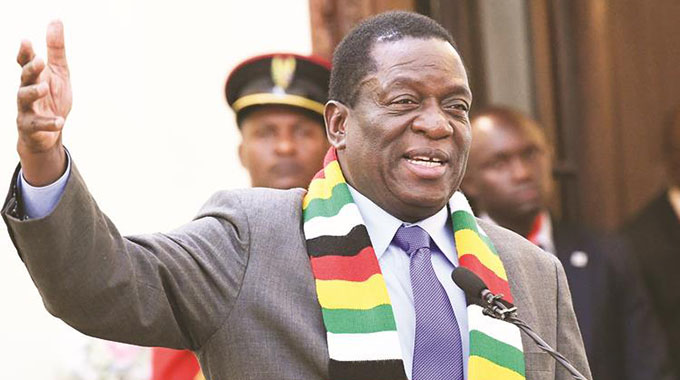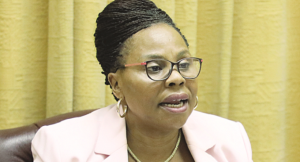
The Sunday News

Limukani Ncube
Possibly, the most well-known theory in this genre of work, Wolfgang and Ferracuti’s Subculture of Violence attempted to outline a methodological framework for the empirical examination of violent subcultures. Central to their discussion was the idea that higher rates of violence amongst lower-class and racialised populations could be explained by the fact that these groups have embraced values and norms that are more permissive of violence.
This theorisation assumes the existence of distinct subcultural, pro-violent values that develop in opposition to dominant or middle-class norms and values. (Singh, 2015, www.children.gov.on.ca)
The subculture of violence discourse argues that once people begin to internalise or accept violence as a way of problem solving or a way of life, then violence becomes imbedded, rooted in society and passed from one generation to the next.
This takes us to recent protests that degenerated into massive violence characterised by looting and burning of shops, harassing of people by protesters, attacks on police and killing of a police officer, burning of cars and destruction of property and loss of life in Bulawayo, Harare, Chitungwiza, Kadoma, Gweru and other places. The gory pictures of shops and cars burnt down are there for everyone to see, yet there is a section of the community that still seeks to sanitise the violent protests and seeks to blame the State for reacting to save property and lives of the innocent.
As President Mnangagwa said, what happened was surely not a Zimbabwean way of doing things. And surely, the schizophrenic way of looking at the violent protests that bordered on terrorism should not be given room in a society that values the sanctity of life and the right to property. Moreover, the police and the army were not deployed on pilgrims going for early morning prayers but hordes of people working in common purpose to injure, loot, steal and cause unrest in the country.
The selective framing of what transpired which condones what was done by protestors and is quick to blame the State for reacting to restore order should be dismissed with the contempt it deserves. Nonetheless, any misconduct by the security apparatus will be invistigated as Government respects human rights. The assurance was made by two Ministers on Friday.
Bulawayo Provincial Affairs Minister Cde Judith Ncube said a third force could not be ruled out in the protests because of the manner in which looting and destruction of property was systematically carried out, with schools forced to close, kombis forced off the road and those going to work manhandled and forced to go back home so as to “heed” the so called shut down.
The Minister of Industry and Commerce, Hon Nqobizitha Mangaliso Ndlovu said the acts were preplanned and were terrorism.
“Looking at the nature of destruction, particularly at Choppies Supermarkets, it is quite clear that it was not random looting, but it was planned and we also noted that some chemicals were used to burn these shops and certainly this requires further investigations. Most of our people got into the bandwagon without knowing that this was planned arson and precisely this is terrorism,” he said.
What should also be criticised is the use of children in the protests. Young children were seen running around shops carrying looted goods being commandeered by their parents, even mothers with kids strapped on their backs were seen all over social media running around carrying looted goods. On Thursday, five minors, between the ages of six and 13, appeared in court facing charges of looting.
“I was driving home and I had managed to manoeuvre my way until I was at Mabutweni where I was stopped by young boys, roughly about 12 years old, who demanded that I pay a ‘tollgate’ of $2, so that I could pass. There were about three groups of such boys in the area and they all demanded toll gates from motorists and they threatened to stone and burn the vehicles if one tried to resist. Is this the culture we want to inculcate in our children?” said a Bulawayo resident from Pelandaba.
Bulawayo Progressive Residents’ Association acting coordinator Emmanuel Ndlovu said it was saddening to note that the skirmishes were mostly perpetrated by youths and children.
“It is saddening to note that the rampaging was mostly perpetrated by young children apparently with no ideology of the repercussions it has but unfortunately driven by excitement of the unfolding developments…The events were actually regrettable, devastating and disgusting and we have actually become our own worst enemies because we are now failing to get the goods, which we used to obtain from shops within our vicinities and to make matters worse even those that were not involved are now paying heavily,” he said.
Confederation of Zimbabwe Industries Matabeleland chapter president Mr Joseph Gunda said the violent protests were a sign of the death of cultural and good morals at homes.
“Peace and security start in our homes. These people (rioters), whatever the cause might have been whether it was hunger or price hikes, we must exercise restraint because once you damage infrastructure, someone’s investment or car that person will never be able to recover…,” he said.
It is estimated that the economy suffered heavily across all the sectors with direct losses estimated to be $800 million. The retail sector alone suffered the most as an estimated $500 million worth of stock and properties were vandalised. Zimbabwean industries contribute $100 million daily to gross domestic product, and the terror attacks cost the country around $300 million directly. About 800 people have since been arrested for various offences emanating from the riots, with most of them found with looted goods.
The protests were organised by the MDC Alliance and its partners, under the disguise of demonstrating against fuel prices, but it has since emerged that the riots were preplanned to cause an illegal regime change, as evidenced by the coordination of the looting of shops and closing of schools, as well as the setting up of “safe houses” where some organisers and participants in the riots were hiding from the police.
“There is a group that was also going around opening shops using an assortment of tools and after breaking down doors, the group would then invite people to loot. The group was seen in a number of suburbs in Bulawayo doing the same thing. This shows this was planned and coordinated,” said a Bulawayo resident.
In addition, Presidential spokesperson Mr George Charamba said the riots were not a local affair, but a way by Western countries to camouflage their goals on Zimbabwe and the African continent in general. It emerged that three African states namely Zimbabwe, Sudan and DRC were supposed to fall within a week as part of United States’ aggressive plan against the continent. The US announced last year that it is instituting a new policy for Africa with an aim of checkmating Russia and China. Russia and China are using their investment and trade to forge strong ties with African governments.
Mr Charamba, who is Deputy Chief Secretary to the President and Cabinet (Presidential Communications), said the recent demonstrations which were instigated, organised and managed by MDC-Alliance and its affiliate non-governmental organisations should never be mistaken for local politics.
“Yes, the face was local, but the politics were external. Locally, it does not make sense let alone a coherent narrative to at one level suggest that Zimbabwe is over 80 percent unemployed while in the same vein creating a dummy called Zimbabwe Congress of Trade Unions. Surely 80 percent unemployment and you still have a labour movement, it just doesn’t add up! This level of cheap propaganda is an insult to the intellect of Zimbabweans who know better. The thing belongs to the MDC and the MDC leadership, to the man and woman must pay the price for the dead, injured and all the looting that took place.”
Mr Charamba said the agenda for the demonstrations far exceeded bread and butter issues.
“That plan is continental and is predicated on reshaping the politics of the African continent to make them useful to Western imperial interests.”

Minister Mutsvangwa
Information, Media and Broadcasting Services Minister Cde Monica Mutsvangwa said any more forms of violence was an open application to the State to deal with the perpetrators decisively. She said regime change agents will not succeed.
“We would want to assure people that Government will protect them from hooligans. Our security forces are on the ground monitoring the situation and ensuring that the security of the people is guaranteed. We want to protect our law abiding citizens. As you have witnessed in the past few days we have arrested a lot of protesters. This shows that we are committed to ensuring the security of our citizens. Our security institutions are on the ground and will provide security,” said Minister Mutsvangwa.
President Mnangagwa has slammed the violence that occurred, and urged Zimbabweans to focus on reviving the economy.
“I invite leaders of all political parties as well as religious and civil leaders to set aside our differences and come together. What unites us is stronger than what could ever divide us. Let’s begin a national dialogue. Let’s put the economy first. Let’s put the people first,” he said.



